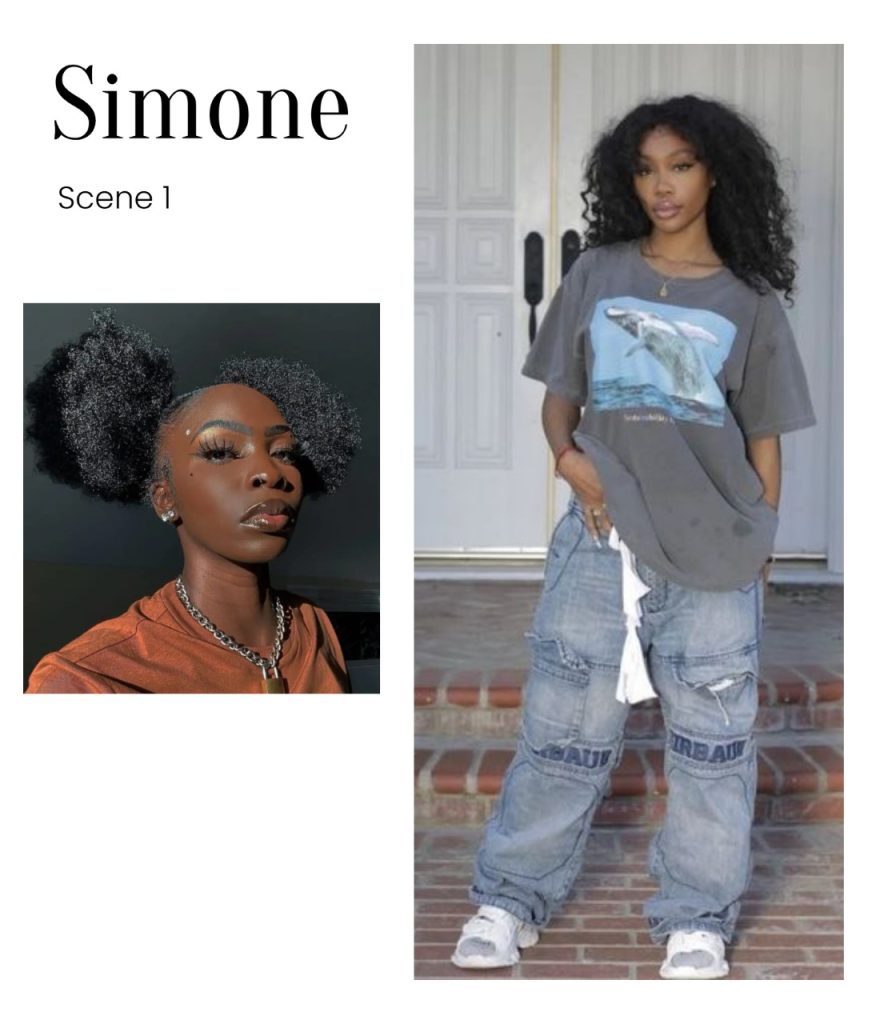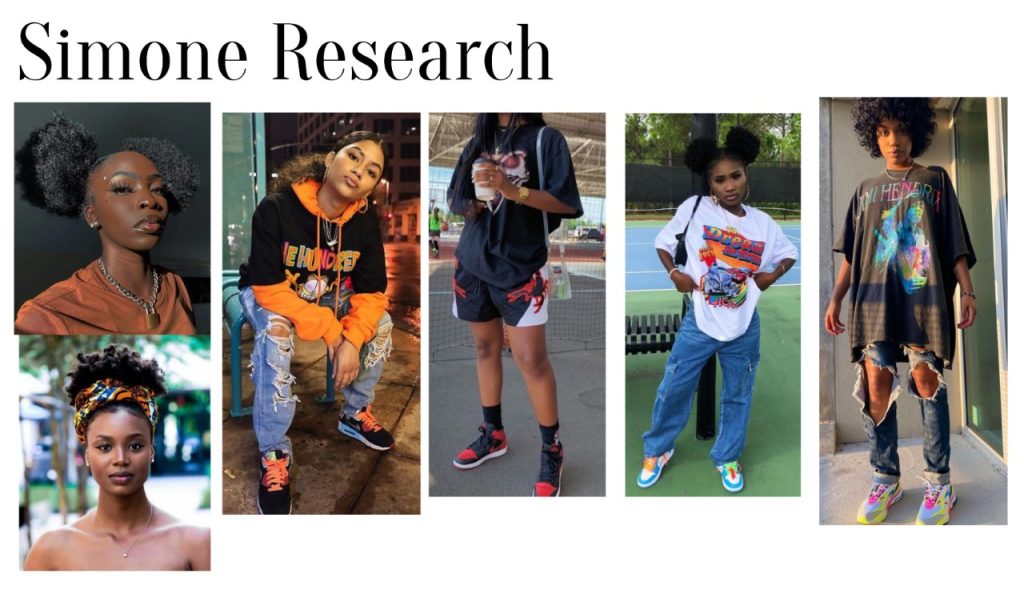-
Jun 18 – Jun 19, 2021
- Online
- Tickets: Pay what you can (suggested $10)
- Register for Link to Watch
By Dan Caffrey
Directed by Ingrid De Sanctis
June 18 & 19 – Both a coming-of-age story and a theatrical take on cli-fi, The Amphibians is about the evolution of friendship and what it means to take care of something at the end of the world.
-
Jun 18 – Jun 19, 2021
- Online
- Tickets: Pay what you can (suggested $10)
- Register for Link to Watch
Set thirteen years in the future, The Amphibians takes place in the west central Florida town of New Port Richey, shortly after we’ve passed the point of no return in the fight against climate change. One day while wandering through the woods, 17-year-old Simone unearths something wondrous, which she immediately shares with her best friend Bryn. At first, the girls view their discovery as a sanctuary from the anxieties of climate-induced disaster. But as the school year progresses, they realize their find may have a significant connection to global catastrophe. Both a coming-of-age story and a theatrical take on cli-fi, The Amphibians is about the evolution of friendship and what it means to take care of something at the end of the world.
Join us for a talkback following the performance on Saturday, June 19. Click here to register.
Meet the PlaywrightCREATIVE TEAM
Playwright: Dan Caffrey
Director: Ingrid De Sanctis
Stage Manager: Jordan Simon*
Assistant Stage Manager: Cameron Wynne*
Assistant Director: Isa Jones*
Dramaturg: Cameron Field*
Scenic Design Response: Sophia Debora*
Sound Design Response: Kaitlyn Gamory*
Lighting Design Response: Helen Strickland*
Costume Design Response: Leyandra Cardoza*
*denotes UCF student. All cast members are UCF students.
CAST
BRYN: Maddy La Roche
SIMONE: Anita Whitney Bennett
CREATURE: Tori Micaletti
STAGE DIRECTIONS/UNDERSTUDY: Alexandra Borsellino
PEGASUS PLAYLAB STAFF
Artistic Director: Julia Listengarten
Design Advisor: Vandy Wood
Stage Management Advisor: Claudia Lynch
Production Manager: Gary Brown
Marketing Coordinator: Steven Risko
Box Office Manager: Bridget Parry
Dramaturgy Advisor: Chloë Rae Edmondson
Artistic Associate: Sage Tokach*
About the Playwright and Director
Dan Caffrey (Playwright) is an alumnus of UT Austin's MFA Playwriting program. He grew up in New Port Richey, Florida, and is now based in Atlanta, where he teaches playwriting at the Alliance Theatre. He has been an O'Neill Finalist, an MFA Scholar at the Sewanee Writers' Conference and is shortlisted for the Alpine Fellowship, with several plays published in anthologies by Smith & Kraus. dancaffreywrites.com
Ingrid De Sanctis (Director) currently teaches playwriting and acting at James Madison University (JMU) in Harrisonburg, VA. As a director and teacher, much of her time is spent supporting playwrights as they develop their new plays. Most recently, she earned the honor of the 2020 Distinctive Teacher in the College of Visual and Performing Arts and Make your Next Move Award in 2019, recognizing JMU faculty for outstanding work helping students move forward with their careers. Ingrid is a director with Madison New Works Lab at JMU and Director of the New Play Development Workshop, the annual showcase of ten-minute plays at the ATHE conference. Since 2016, she has served as a director for ten minute and one act plays for the New Play Program with the Kennedy Center American Theatre Festival. As a playwright, she creates edgy, challenging plays on such topics as refugees in the Balkans (Torba), survivors of violent crime (A Body in Motion), and a young woman living with — not dying from — cancer (Sarah and the Dinosaur). With the support of two Provost grants at JMU, she completed two full-length plays, Hands of Clay and Walls,and collaborated with composer Andrew Morrissey on the musical Lost in Wonderland developed by Pallas Theatre. Stained Glass was awarded Best New Play in Dayton and was a semifinalist for the Eugene O’Neill Playwriting Festival in 2019. Ingrid continues to work as an actor, director and playwright pursuing projects that reflect stories of transformation and grace, and will perform in basements, churches, theatres — anywhere a good play will make a big difference.
Interview with the Playwright, Dan Caffrey
This interview was conducted by dramaturg, Cameron Field.
---
The play takes place in New Port Richey Florida which is a place you are familiar with, but also depicts events that are hard to imagine happening today, even though they might not be that far off. What was the messaging behind this?
To be honest, setting The Amphibians in New Port Richey didn't have a lot of thought behind it other than that's where I grew up. Starkey Park was right behind my house and, like many wilderness preserves in Florida, has always felt like a truly magical place. There are armadillos, alligators, Florida panthers, gopher tortoises, wild pigs, and lots of other wildlife out there. One time, we even found an albino ball python that someone had left in the middle of a trail (fortunately, the park services rescued it). All of that is to say, because of all the enchanting (and often frightening) real-life creatures in the park, it was easy to imagine my own speculative creature dwelling in the same place. I also come back to New Port Richey in several of my plays simply because I know it so well—the culture, the distinct convergence of environments, the way people talk.
And regarding the climate-induced events of the future, you hit the nail on the head with your question. For one reason or another, I'm just drawn to unfamiliar things taking place in familiar places. I think it comes from reading a lot of Stephen King.
What was your inspiration behind the unique characters Simone and Bryn?
About seven years ago, I started getting anxious about climate change in a way that was completely debilitating, mainly because my wife and I had nieces born on both sides of our family. Although they're not my own children, there were suddenly very young people in my life that I cared about deeply. I started worrying about the future and wondering what kind of world we were handing them. So I did what a lot of writers do when they're worried about something: I turned it into a story. I imagined my two nieces as teenagers in my hometown and tried to picture what their world would be like—not just on an environmental level, but on a societal and cultural level, too. The fact that I grew up in a state that's especially threatened by climate change seemed like too big an opportunity to pass up. As I began writing, I started to get a little bit away from who my nieces are as people. Although there are definitely aspects of both their personalities in the characters, Simone and Bryn aren't direct stand-ins for them or anything (and who knows what my nieces will actually be like in high school). But the play definitely started with me envisioning their futures.
For any aspiring playwrights in the room, what’s your background? Where did you come from and where are you headed?
Like so many of you reading this, I grew up mostly in Florida doing theatre, attending the same high school as Simone and Bryn do in the script. I started off as an actor—which I think is most folks' first exposure to the art form—then tried my hand at writing plays when I was 14 or so. After getting my B.A. in Theatre at FSU, I really wanted to enroll in an MFA program for Playwriting. When I didn't get in, I wasn't sure what else to do, so I followed a bunch of my theatre friends to Chicago. We founded our own storefront company focused on new work, which I think is a great option for anyone wanting to become a better writer and get their plays seen. If no one's producing your work, put it up yourself. I was then lucky enough to get to the point where other people wanted to produce my plays, too.
But honestly, I don't think I seriously considered that playwriting could be my profession until applying for grad school again, about a decade after that first time. I ended up at UT Austin, which I can't recommend highly enough as a program. A lot of writers get in when they're younger and some get in when they're older. There's no right way to do it, but for me, I probably benefited from it more once I had gotten a lot of life experience working a day job, putting up my plays at night, and freelancing as everything from an ad-copy editor to a pop-culture journalist.
I graduated last year during the pandemic, which was admittedly challenging. But I've been lucky enough to teach playwriting virtually to young artists at the Alliance Theatre in Atlanta, where I live. Now that things are starting to open up again, I'm looking forward to teaching in person. I'm also hoping to get The Amphibians (or any of my plays, honestly) produced in full, in addition to maybe joining a writers group, continuing to participate in two podcasts that I co-host, and focusing more than I have on screenwriting.
This is a new work. What challenges did you overcome while writing The Amphibians? Since The Amphibians had a reading at Kitchen Dog Theatre 22nd Annual New Works festival, was a finalist in 2020/2021 for the Eugene O’Neill Playwriting Festival and Simone’s monologue was published in Smith and Kraus’ annual Best Women’s Monologues anthology, what are the plans to take it further?
For me, the biggest challenge of the play has always been those first 15–20 pages. It's before the creature shows up, so it's the only time I have to deliver background information about this world to the audience and establish the dynamic between Simone and Bryn before the arrival of this scene-stealing third party. I think I've succeeded in making this stretch shorter and more exciting than it used to be, but I still have a lot of questions around the micro versus the macro—balancing out the girls' personal, very human lives with this giant spectacle. But hey, that's the beauty of a development workshop. You get to tackle these questions with a hyper-talented team and hopefully end up with a draft of your play that's more fully realized than when you started.
Cast and Production Team Bios
Anita Whitney Bennett (Simone) is a second-year graduate student in the MFA Acting program. Theatre UCF credits: Dear Helena and How to Catch Creation. Other theatre credits include God’s Necklace (Hyena Spotty, Nyaliep), Step Show: The Musical (Monie), Un-tamed (Josie, Lu, Isha, Renee), Inacent Black and the Five Brothers (Inacent Black), Black Sparta (Thema), Twelve Angry Women (Juror 10) and Ruined (Salima).
Alexandra Borsellino (Understudy/Stage Directions) is a second-year transfer student in the BFA Acting program. Past Theatre UCF credits include Dear Helena (Stage Directions, U/S Diana and Mia) and Scaramouch in Naxos (Bacchante Ensemble). Other UCF credits include Absolute Power (Diana) and Therapy (Director) with Project Spotlight and #CaseyandTommyGetHitched (Viv) with Moment2Moment Productions. @alexandraborsellino
Leyandra Cardoza (Costume Design Response) is a third-year transfer student in the BFA Design and Technology program. Her previous Theatre UCF credits are Urinetown (Draper) and Scaramouch in Naxos (Assistant Costume Designer), and the Pegasus PlayLab production Sombra del Sol (Stitcher, Wardrobe Crew). She has a Fashion Design AAS from the Fashion Institute of Technology. Instagram: @leyandra_c
Kaitlyn Gamory (Sound Designer) is a first-year student in the BFA Design and Technology program. Her previous Theatre UCF credits include Pegasus Playlab’s To Saints and Stars (Sound Designer) and Knights’ Ghostlight Podcast.
Isa Maria Jones (Assistant Director) is a current double major in the BFA Acting and Digital Media programs. With Theatre UCF, she has been part of Blood at the Root (Asha) and Much Ado About Nothing (Assistant Director). Other credits include A Midsummer Night's Dream (Hermia) and Into the Woods (Little Red). She has directed The Vagina Monologues, We’ll See for Project Spotlight and a short film, Mean It. Instagram: @isamariajones
Jordan Simon (Stage Manager) is a junior in the BFA Stage Management program. Her previous work with Theatre UCF includes Water by the Spoonful (Board Operator), UCF Celebrates the Arts 2019(Production Assistant) and Much Ado About Nothing (Assistant Stage Manager).
Helen Strickland (Lighting Design Response) is a third-year student in the BFA Design and Technology program. Previous Theatre UCF credits include The Grumpiest Boy in the World (Stitcher).
Cameron Wynne (Assistant Stage Manager) is a sophomore in the BFA Stage Management program. His previous work with Theatre UCF includes A Knight of Dance (Production Assistant) at UCF Celebrates the Arts 2021.
The Sights and Sounds of "The Amphibians"
Curated by production dramaturg, Cameron Field.
View a Pinterest board inspired by The Amphibians.
https://open.spotify.com/playlist/7Myzm7mpNBvY9ydTWhMd8K?si=2cf39ebae8d541d7&nd=1
Costume Design Response by Leyandra Cardoza
DESIGN RESPONSES
While these readings won't have sets, costumes, lights or sound design, a team of student designers worked with the creative team to develop design concepts. This process helps the cast and creative team understand what the play may look and sound like while they continue to develop the story and characters.






Lighting Design Response by Helen Strickland
DESIGN RESPONSES
While these readings won't have sets, costumes, lights or sound design, a team of student designers worked with the creative team to develop design concepts. This process helps the cast and creative team understand what the play may look and sound like while they continue to develop the story and characters.
Sound Design Response by Kaitlyn Gamory
DESIGN RESPONSES
While these readings won't have sets, costumes, lights or sound design, a team of student designers worked with the creative team to develop design concepts. This process helps the cast and creative team understand what the play may look and sound like while they continue to develop the story and characters.
Scenic Design Response by Sophia Debora
<h2 class="text-center text-secondary mb-3">DESIGN RESPONSES</h2>
While these readings won't have sets, costumes, lights or sound design, a team of student designers worked with the creative team to develop design concepts. This process helps the cast and creative team understand what the play may look and sound like while they continue to develop the story and characters.
<img class=" img-fluid alignnone wp-image-7291 size-large" src="https://cah.ucf.edu/arts/wp-content/uploads/sites/50/2021/06/Scenic-Design-1024x745.jpg" alt="" width="1024" height="745" />
Performance Schedule
- Friday, June 18, 2021, 7:30 p.m.
- Saturday, June 19, 2021, 7:30 p.m.